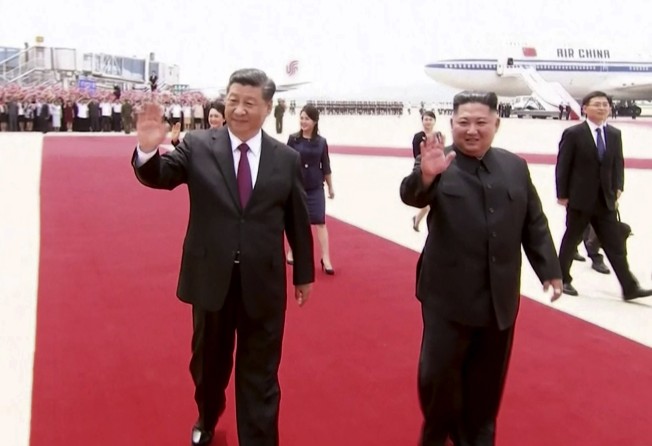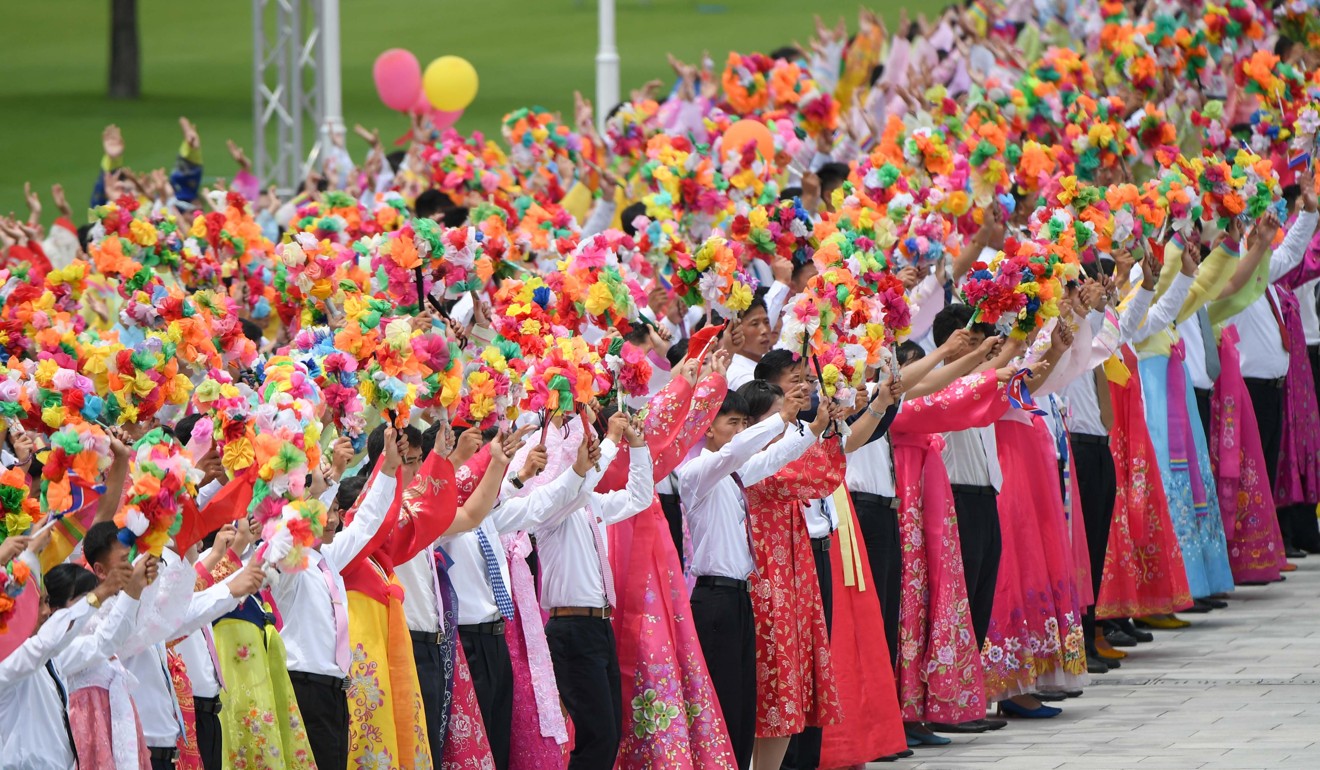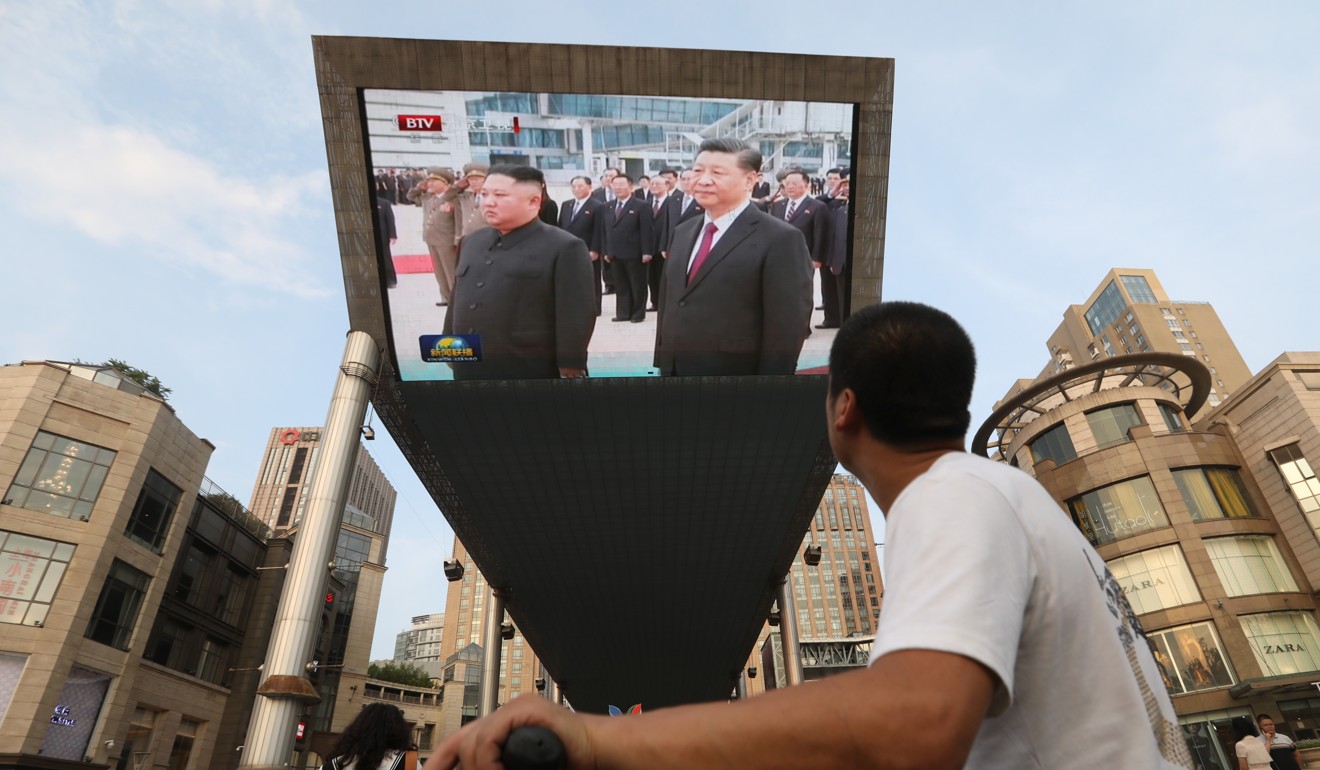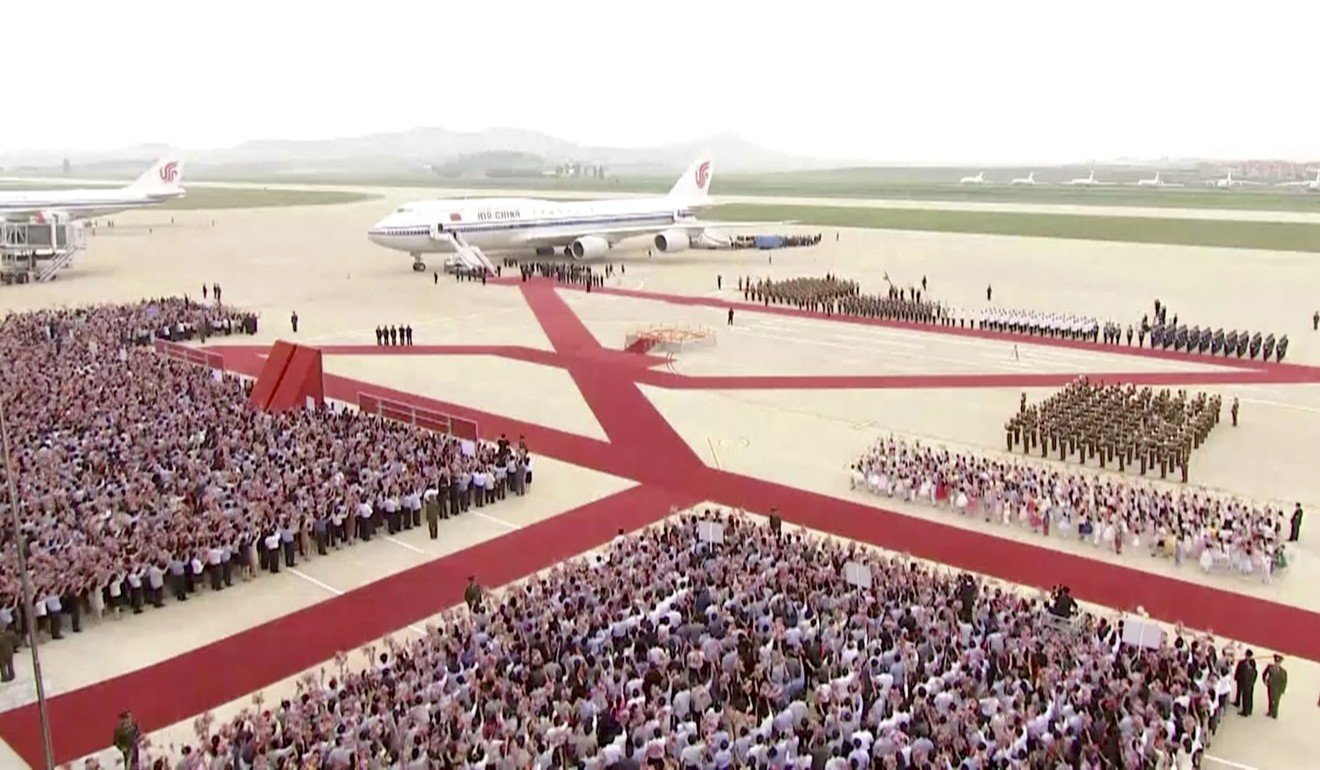Chinese President Xi Jinping promises to play ‘positive’ role in helping North Korea denuclearise
- Chinese leader tells Kim Jong-un he is ready to assist peace talks and help North meet its needs at start of two-day state visit to Pyongyang
- Kim avoids naming Donald Trump directly, but blames the ‘relevant parties’ for not responding to his overtures

Chinese President Xi Jinping promised on Thursday to help North Korea satisfy its “security and development needs” and play a “positive and constructive role” in denuclearising the Korean peninsula.
In his reply, and without naming the United States or Donald Trump directly, North Korean leader Kim Jong-un promised that North Korea would remain patient even though unnamed “parties” had “failed to respond positively” to his overtures.
The visit by Xi, which came just a week ahead of his highly anticipated meeting with Trump on the sidelines of the G20 summit in Japan, was closely watched for clues about whether China would help advance the denuclearisation talks that have stalled since the Hanoi summit between Kim and the US president collapsed in February.
Chinese state broadcaster CCTV reported that Xi had told Kim: “China is ready within its capacity to help the Democratic People’s Republic of Korea address its legitimate security and development concerns, strengthen coordination with it and other relevant parties, and play a positive and constructive role in realising denuclearisation on the peninsula and achieving enduring peace and stability in the region.”
The inability to effectively deal with North Korea undermines US credibility and influence in Asia, and this benefits China
Kim responded by saying: “Over the past year or so, the DPRK has taken many positive measures to prevent tension and control the situation on the peninsula, but it has not received a positive response from relevant parties. This is what the DPRK does not want to see.
“The DPRK is willing to remain patient. [But] at the same time, it hopes that the parties concerned will meet the DPRK halfway, explore solutions that are in line with our respective legitimate concerns, and promote the dialogue process to achieve new results in safeguarding peace and stability in the [Korean] peninsula.”
In Thursday’s meeting at the Kumsusan State Guesthouse, both Xi and Kim highlighted the “close friendship” between their two countries, saying they were part of the “same family” and that Xi’s visit would open a new chapter in their relationship.
China has been North Korea’s biggest guarantor of security since the Korean war in the 1950s, and the 1961 Sino-North Korean Mutual Aid and Cooperation Friendship Treaty promises Chinese military intervention if North Korea is “subjected to the armed attack by any state or states”.

The day before Xi’s visit began, US Special Representative for North Korea Stephen Biegun offered some hope that the peace process could be restarted, telling a forum at the Atlantic Council, a US think tank, that the US wanted to resume talks with Pyongyang.
China is also keen to minimise the prospects of instability in its smaller neighbour for fear that it will spill across the border into its northeastern provinces, and the North’s economy remains in a parlous state following the collapse of the talks with Trump in February.
Earlier on Thursday, the Chinese president was greeted by Kim and his wife Ri Sol-ju at Pyongyang Sunan International Airport.

The North Korean leader was accompanied by Pak Pong-ju, a former premier and key economic aide, and Foreign Minister Ri Yong-ho.
North Korean officials held a grand welcoming ceremony at the airport, where Xi and Kim together reviewed an honour guard.
Nearly 10,000 North Koreans, some in traditional dress, were at the airport to greet Xi and his entourage and Kim said later that more than 250,000 people had turned out in the streets of Pyongyang to welcome the Chinese leader.
Later at the Kumsusan Palace of the Sun, which serves as the mausoleum for Kim’s grandfather and father, Xi became the first foreign leader to be given a welcoming ceremony at this “sacred” place.
It is the first visit by a Chinese president to North Korea in 14 years and the first to be formally classified as a state visit.
Previous visits by Chinese leaders to the reclusive state were classified as “friendly visits” and the change in protocol suggested that China is trying to shift the emphasis from its ideological ties to its fellow communist state to adopting a more pragmatic approach.
Diplomatic observers noted that Xi’s trip to Pyongyang should be seen in the context of the upcoming meeting between Xi and Trump in Osaka next week and an ongoing trade war between China and the US.
“Good relations with North Korea give Beijing additional leverage in its bilateral relations with the US,” said Adam Ni, a China researcher at Macquarie University in Sydney.
But some observers cautioned that China’s priority would be on maintaining stability – or the status quo – on the Korean peninsula, rather than an acceleration of the denuclearisation talks.

“While China has an interest in keeping North Korea from making further destabilising moves, it also does not want a deal between North Korea and the US that would result in lesser Chinese influence on the Korean peninsula,” Ni said.
“The inability to effectively deal with North Korea undermines US credibility and influence in Asia, and this benefits China. Hence, China plays a difficult balancing game with a number of policy aims,” Ni added.
Xi was accompanied by his wife Peng Liyuan, China’s top diplomat Yang Jiechi, and Foreign Minister Wang Yi, as well as He Lifeng, head of the National Development and Reform Commission.
Xi and Kim were expected to attend a banquet on Thursday evening and then possibly a mass gymnastics performance at the Rungrado May Day stadium.
The Chinese president is also expected to visit the DPRK-China Friendship Tower, near the Chinese embassy, during his stay in Pyongyang.
Sign up to our China at a Glance newsletter and you'll receive an exclusive 3-day G20 news package in collaboration with POLITICO (coverage from 28-30 June)